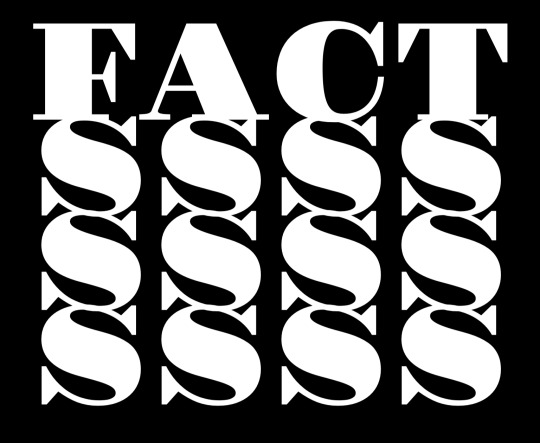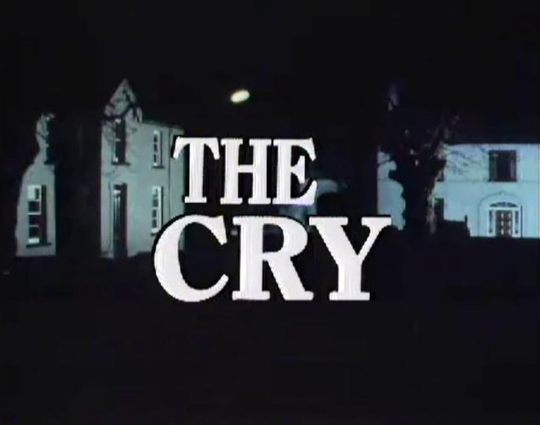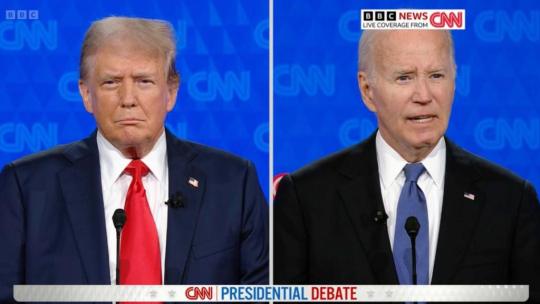#political disillusionment
Explore tagged Tumblr posts
Text

This obsession so many liberals and leftists have with RFK just proves that many of them are not actually paying attention to policy or political positions these candidates have. The left is supposed to be the ones that act more intelligently however moments like this really proves how much in common the left has with the right.
#liberals#leftists#rfk#political obsession#policy ignorance#political positions#left wing#right wing#political intelligence#political awareness#political alignment#candidate evaluation#political criticism#bipartisan similarities#political disillusionment#left wing critique
123 notes
·
View notes
Text
The Great British Conundrum
Ah, Britain my homeland a nation famed for its stiff upper lip, common sense, and a long-standing tradition of political pragmatism. But recently, I’ve found myself feeling a deep-seated shame in my country’s political trajectory, a feeling that's hard to shake. It’s like we've lost our compass and don’t know which direction to follow. To put it politely. We’ve had Conservatives elected to lead, yet, rather than implementing conservative policies, we saw them governing like liberals. And now, the Labour Party sweeping in on a wave of frustration seems dead set on imposing an outright socialist agenda. I can’t say I’m thrilled.
In a time when true conservative values should be the answer to the social and economic chaos around us, the Conservatives barely held onto their ideological roots. They became lost in a desperate attempt to appeal to everyone, trying to be all things to all people governing like moderates when they should have drawn firm lines. People expected robust action on immigration, crime, economic growth, and more, but instead, we got half-measures, compromises, and a heavy dose of liberal appeasement.
So, it’s no wonder that Labour found an easy path to power. People were tired of the Conservatives’ wavering, their failure to take a stand or implement anything truly conservative. Labour painted themselves as the refreshing alternative, promising solutions for those left disillusioned by years of fence sitting. But let’s be honest: Labour’s brand of 'solutions' isn’t designed to make Britain prosperous or independent; it’s aimed at pulling the country leftward at a startling speed. And it’s not a course correction; it’s an overhaul.
We are a country now faced with a government that believes in bigger state control, wealth redistribution, and policies that echo socialism. I am no fan of this trajectory. AT ALL! The Labour Party may be all about fairer society rhetoric, but the methods often involve policies that weaken individual freedoms, inhibit entrepreneurial spirit, and crush personal responsibility. It’s as if we’ve forgotten that a prosperous nation doesn’t come from more bureaucracy but from empowering individuals to rise, contribute, and thrive.
The political landscape of Britain has come to look like a parody of itself. Conservative leaders acting like liberals, liberal ideas embedded in every institution, and a left-wing government now preaching values antithetical to the very foundations of British life. This isn't the Britain I know, and it’s frustrating to watch.
But we must remember, as bleak as it feels now, the pendulum always swings back. There’s an audience in this country for true conservative values policies that uphold national sovereignty, encourage economic freedom, and foster individual responsibility. We can only hope that our next wave of leaders embodies those principles with conviction, not by pandering but by presenting a genuine vision for a prosperous, strong, and free Britain.
For now, I feel disillusioned and fed up. But I also know that there's a spark of resilience in this country, one that has carried it through challenges before. The British people deserve better, and I believe, eventually, we’ll find our way back.
#British Politics#Conservative Party#Labour Government#UK Elections#Political Disillusionment#British Conservatism#Liberalism vs Conservatism#Socialist Policies#Labour Party UK#UK Political Landscape#Conservative Values#Government Critique#Political Shift#UK Left-Wing#State Control#British Society#Free Market#Individual Responsibility#National Sovereignty#Political Pendulum#new blog#today on tumblr
3 notes
·
View notes
Text
The Illusion of the Blue Wave: A Critical Examination of Democratic Electoral Cycles
Over the last decade, the terms “blue wave” and “blue storm” have become synonymous with the hopeful anticipation of electoral change driven by the Democratic Party. Each election cycle brings renewed optimism for a shift away from conservative governance, yet the concrete outcomes often fail to materialize. This essay delves into the recurrent theme of blue waves, illustrating how expectations…
#2024 elections#blue storm#blue wave#Democratic Party#election cycles#electoral politics#midterm elections#Palestinian cause#political disillusionment#presidential elections#Social Justice#voter engagement
0 notes
Text
By now, there's lots of people have heard about the internal CDC memos for all newly prepared manuscripts (like future scientific papers waiting to be published):

There's so much to comment on, and I'm seeing it all right now. What the state of science is. What this means for the queer community. All of that.
But fuck, I think I might genuinely start crying over this. As a transgender biologist, this feels like a brutally personal blow. I slowly accepted my gender alongside my biology education. The more misinformation that was spewed about "biological sex" by mainstream media, the more my professors, colleagues, and primary sources would casually drop information that proved they have no idea what they're talking about. I'm not an expert on sex determination, gender, or transgender biology specifically by any means. But my worldview has been crafted by my studies in genetics and molecular biology.
Engaging with this research helped me demystify transition. It helped me optimize my transition. It helped me explain how HRT and other steps of trans healthcare work to other people. And it helped me overcome my own internalized transphobia, and finally start transitioning, despite knowing I wanted to since my preteen years.
Who knows how enforceable internal guidelines like this will be. But its certainly going to scare a lot of researchers away from transgender healthcare and science in the coming years, and that breaks my heart.
There's a lot I can say here, but fuck. I just needed to vent for a moment. Fuck.
#before this election#I had a backburner disillusionment with the current state of research and society#particularly in its impotence#climate scientists collecting data on a dying world and sending it to governments who do nothing#lab biologists generating more and more experimental data thats stifled from becoming real medical development by pharma and insurance#the events of the past couple of weeks have escalated that feeling a lot tbh#add it to the pile of reasons im leaving academia#i feel like i need to do SOMETHING with that feeling#but i dont know what#biology#transgender#trans#us politics
5K notes
·
View notes
Text



#uspol#just sick to death of the us death machine affecting the rest of the world the way it does and the average liberal still rbing vote now shi#as if anything will stop palestinians being fed into the maws of empire and as if disillusionment is the LEAST i would expect#politically engaged usamericans: the empire is falling and taking everyone with it#panicblogging vote blue is not going to help. it will alienate those around you who know that#and who the us brutalises already and will not stop brutalising#tony muses
22 notes
·
View notes
Text
Anatomy of a Broken System; On Medical Inequality and Why I Chose Not to Become a Doctor

Following the political uproar of the Luigi Mangione case and the ensuing discussion on healthcare reform, I found myself reflecting on my own relationship with the healthcare system. After the tragic and unjust deaths of my grandma due to diabetes complications and later my neighbour, who died of kidney surgery complications at just 20 years old, I had long ago distanced myself from pursuing a medical career path, realising that even if I dedicated my life to the field, saving lives like those dear to me might still be impossible.
Medicine may be humanity’s shared endeavour to preserve life, but the yield of such collective effort remains disproportionately distributed. Today’s healthcare industry undoubtedly places profits above people, often jeopardising those of a lesser social and economic standing. Though my mum urged me to serve in white and try to save lives like her mother’s, I refused what felt like a futile pursuit. The medical system has failed the collective too frequently for my participation to make a meaningful difference — a truth I couldn’t articulate at the time but instinctively understood.
The Hierarchy of Healthcare

Through watching miracle surgeries performed on TV during my childhood and witnessing the many preventable deaths in my adolescence, I have come to understand that the healthcare system always played favourites. According to the Health Foundation, people living in impoverished areas have worse health outcomes and tend to die earlier [2]. These deaths are not complicated or unfeasible procedures, but rather illnesses that medicine has tackled for centuries. It is being able to afford insulin pumps every month. It is being operated on with sanitised surgical equipment. It is an insured-covered follow-up visit to the doctor after a new treatment. In the same vein, Cody Jacob shares how his mother died of diabetes complications due to her insurance denying coverage of her essential supply, which included pumps, insulin, tests, batteries, wipes, etc. Horrifically, her insurance only approved coverage for those supplies once her status had changed – to deceased [3].
Medical recovery heavily relies on economic access. The cure to the deaths plaguing our societies is often unattainable for its most vulnerable members as, for example, many lower-class Americans remain uninsured [4]. This gap in access extends beyond life-saving medication. Preventative care and mental health services are also disproportionately distributed [4], deepening cycles of inequality. While individual doctors may save lives, they still operate within a system that constrains their ability to influence widespread change. So, when the healthcare costs continue to rise while the quality keeps declining [1], we have to ask: where does the money go?
In Service of the Elite

Such questions often go unanswered since medicine, alongside many other STEM fields, has served those on top first, its benefits only trickling down over time. As one progresses in their medical career, they become more entrenched in fulfilling elite interests. Even working in impoverished areas can feel limited in impact, as structural barriers and industrial control remain intact. While current narratives might delude us to idealise capitalistic medicine, history paints a different picture. For example, from the late 19th to the mid-20th century, there was a dramatic reduction in mortality rates, particularly in England. This improvement was primarily due to public health initiatives like sanitation, clean water, improved housing, and vaccinations, not capitalist-driven innovations. In fact, the early capitalist class often resisted these improvements, as they involved increased taxes and infrastructure investments [5].
Still, the healthcare industry continues to promote the idea that privatised healthcare is more efficient, despite evidence suggesting that public systems often deliver better outcomes at lower costs [5]. Disturbingly, the media pushes a narrative that glorifies ‘consumer choice’ to justify the commodification of medicine while ignoring social determinants of health, such as inequality, poor housing, and limited access to education. It focuses on health being an individual responsibility when, in reality, individual choices only account for 20% of health outcomes, the rest determined by socioeconomic factors [2].
Medical discrimination extends to the academic world, as research funding is skewed toward issues affecting wealthier nations rather than systemic reforms. Diseases that disproportionately affect women and Black populations receive smaller funding increases compared to its counterparts [6]. This consequence is partly due to lower advocacy for those groups combined with neglect for decision-making metrics, such as dollars per death, that allocate funding to address much critical mortality concerns. Agócs [7] has defined such resistance embedded in organizational processes, policies, and power structures as Institutionalised Resistance, which manifests as denial, inaction, and repression, rendering individual efforts to disrupt the system futile. However, there have been efforts that were prosperous, such as West Africa’s Ebola outbreak response, celebrated for its data-driven, patient-centred, and localised community engagement strategies to control the epidemic [8]. Such success presents us with hope for wide-scale reform within the medical world.
Practicing Medicine in Vacuum

But if we truly desire such change, we must accept the harsh truth: medicine under capitalism has never been neutral, evident by the unfair distribution of medicinal resources and the stark disparities in health outcomes. As such, absolute medical advancement should not be exalted, as it is not but propaganda that serves the elite. Blindly advocating for progress in medicine above all else abandons critical thought about the urgent realities facing our communities. Many medical professionals and academics join the field wanting to save lives but end up only saving those deemed "valuable" by economic and social standards. That was the reality that I knew I would regret living if I joined the field following the loss of my grandmother. After all, those millions of preventable deaths [9] would continue to happen.
The culture of glorifying medicine strays us away from developing tools to think critically, tackle the bigger picture, and reevaluate our priorities. Unfortunately, medical professionals are discouraged from contextualising their work within social and economic spheres, focusing heavily on scientific expertise, honour, and prestige. As a child of Black-Brown immigrant parents, I have experienced immense pressure to enter the field for similar reasons – even though my interests lay in social problem-solving and storytelling, my strengths being far from applicable in the biological world. I felt obligated to ‘make the best use of my gifts’ and to choose a study that was actually beneficial, which, in my community, only meant STEM.
Today, medicine operates like a tool of the bourgeois system, used to decide who deserves to live. Entering the field means participating in a game rigged against the poor. Our communities cannot afford to play the game passively anymore. We must think bigger, addressing systemic inequalities rather than merely treating their symptoms. In the current capitalistic atmosphere, critically choosing a career path might be the most political statement an individual choice can make. My creative and humanistic passions might not have always been valued in my younger years, even by me. But now, more than ever, I understand the value in engaging in them: to advocate for and express oneself is to engage in political advocacy, social expression, and systemic change.
Bibliography
Brown, A.: Opinion | Capitalism Versus Compassion: Can Healthcare Do Both?, https://www.medpagetoday.com/opinion/prescriptionsforabrokensystem/104139.
eGPlearning: Addressing Health Inequality in General Practice, https://www.youtube.com/watch?v=Tvu--5tmK1M, last accessed 2025/03/18.
Jacob, C.: It took my mom dying for insurance to cover her needs!, https://www.tiktok.com/@imcodyjacob/video/7445339073356631342?is_from_webapp=1&web_id=7443142350052034056, last accessed 2025/03/28.
Economic Barriers to Healthcare Access, https://www.cliffsnotes.com/study-notes/23073691, last accessed 2025/03/28.
Leys, C.: Health, health care and capitalism. Socialist Register. 46, (2010).
Best, R.K.: Disease Politics and Medical Research Funding. American Sociological Review. 77, 780–803 (2012). https://doi.org/10.1177/0003122412458509.
Agócs, C.: Institutionalized Resistance to Organizational Change: Denial, Inaction and Repression. Journal of Business Ethics. 16, 917–931 (1997). https://doi.org/10.1023/a:1017939404578.
Braithwaite, J., Mannion, R., Matsuyama, Y., Shekelle, P., Whittaker, S., Al-Adawi, S., Ludlow, K., James, W., Ting, H.P., Herkes, J., Ellis, L.A., Churruca, K., Nicklin, W., Hughes, C.: Accomplishing reform: successful case studies drawn from the health systems of 60 countries. International Journal for Quality in Health Care. 29, 880–886 (2017). https://doi.org/10.1093/intqhc/mzx122.
Kruk, M.E., Gage, A.D., Joseph, N.T., Danaei, G., García-Saisó, S., Salomon, J.A.: Mortality Due to low-quality Health Systems in the Universal Health Coverage era: a Systematic Analysis of Amenable Deaths in 137 Countries. The Lancet. 392, 2203–2212 (2018). https://doi.org/10.1016/s0140-6736(18)31668-4.
Credit
Different types of mold grown in Petri Dish - Home DIY lab - Bacterial Culture, KABOOMPICS
#medical inequality#healthcare justice#capitalism kills#medicine under capitalism#systemic oppression#healthcare reform#anti capitalism#social determinants of health#public health crisis#medical industrial complex#why I never became a doctor#personal essay#immigrant voices#decolonize medicine#grief and resistance#Black and Brown voices#STEM narratives#career pressure#medical disillusionment#humanities#social science#health politics
4 notes
·
View notes
Text
"They're all troubled youth rejecting authority" yeah because the authorities fucking failed, what rock were you living under???
#technically this is about the countercultural movement of the 60's#but this is also about basically all generations that have ever been radicalized#news flash: the youth have ALWAYS been being radicalized#disillusionment with conservative politics adults religions and etc is just part and parcel with youth#you're fed a bunch of dreams and then you realize it was all poison
2 notes
·
View notes
Text
Labour Party Landslide Imminent..
As the political landscape continues to shift and evolve, there's a growing sense of déjà vu reminiscent of the historic 1997 General Election. Back then, the Labour Party, under the leadership of Tony Blair, achieved a monumental landslide victory, ending 18 years of Conservative rule. Fast forward to the present day, and many political pundits are speculating whether we're on the brink of witnessing a similar political upheaval.
The current state of affairs certainly seems to be favouring the Labour Party. Which I am wholeheartedly against but let’s face simple facts with widespread dissatisfaction over the Conservative government's handling of various issues ranging from the economy to english channel migrant crossings, there's a palpable sense of disillusionment among voters. I mean they don’t even act like “proper” conservatives. In all truth I can’t tell them apart anymore. Cause let’s face it we obviously are locked in a two party system for the foreseeable future.
As I have gotten older I won’t lie I have grown extremely cynical about politics and yes I do have some very strong views by some. I have always quoted the great classical Greek philosopher Plato “One of the penalties for refusing to participate in politics is that you end up being governed by your inferiors.” But here’s the sad blunt truth is my party the Conservative Party have been in power longer than any party since the war. We need to show that we are not stagnating, that we are capable of self-renewal sadly that isn’t happening at all. It’s making me question. “Why should I bother to vote anymore?”
Furthermore, the Conservative Party's internal divisions and scandals have further eroded confidence in their ability to govern effectively. From controversies surrounding leadership decisions to accusations of cronyism and corruption, the Tories are grappling with internal strife that threatens to undermine their electoral prospects. Against this backdrop, Labour appears as a beacon of stability and integrity, offering a viable alternative to the status quo. I feel no compunction at all they have well and truly brought all of this upon themselves.
Another crucial factor working in Labour's favour is the shifting demographics of the electorate. As younger, more diverse voters come of age, they bring with them a set of values and priorities that align closely with Labour's progressive platform. Issues such as climate change, social equality, and healthcare resonate strongly with this demographic, providing Labour with a natural advantage in winning their support. Younger voters most seem to be very naive about politics.
Of course, it's important to acknowledge that predicting election outcomes is always fraught with uncertainty. Political landscapes can change rapidly, and unforeseen events or developments could alter the trajectory of the race. Nevertheless, if current trends persist, it's not difficult to envision a scenario where Labour secures a landslide victory reminiscent of 1997. I mean I could be wrong and maybe just maybe the Conservatives will be reelected to power.
In conclusion, the parallels between the present moment and the historic 1997 General Election are striking. The writing is on the wall. With the Labour Party gaining momentum and the Conservative Party facing mounting challenges, the stage seems set for a seismic shift in British politics. While nothing is certain in politics, one thing is clear: the winds of change are blowing, and come election day, we may witness a decisive mandate for Labour that reshapes the course of the nation. As for myself when the time comes. I shall be voting for the Reform Party led by Richard Tice.
One more thing…
Never forget that exercising your right to vote are crucial steps toward making a difference. I firmly believe in that.
#British politics#General Election#Conservative Party#Labour Party#Reform Party#Tony Blair#Political disillusionment#Electoral prospects#Political upheaval#Two-party system#Demographic shifts#Youth vote#Political cynicism#Internal divisions#Scandals#Electoral trends#Voter dissatisfaction#Political engagement#Richard Tice#Election outcomes#new blog
1 note
·
View note
Text
A Call for True Change Amidst Chaos
The landscape of American politics has shifted dramatically, especially in the context of Donald J. Trump’s promise to “fix the world.” As the newly sworn-in 47th President of the United States, Trump has taken office amidst great expectation. However, the question remains: can one truly fix the mess created in our society while ignoring the broader, more complex issues at hand? Since entering…
#Civic Engagement#collective action#community empowerment#Donald Trump#global challenges#leadership#political disillusionment#reform#Social Justice#Unity
0 notes
Text





Play for Today: The Cry (BBC, 1984)
"It's best forgotten about."
"You're not gonna be making a complaint?"
"Complaints? We're not making any complaints! We don't want to know about any complaints."
"Complaints against who?"
"Well, the police."
"Who should I complain to about the police?"
"Well, the police, I suppose."
"What good would that do me?"
#play for today#the cry#1984#christopher menaul#derek mahon#adrian dunbar#michael duffy#doreen keogh#breffni mckenna#carol moore#rio fanning#john keegan#michael gormley#peter quigley#oliver maguire#derek lord#birdy sweeney#stella mccusker#denys hawthorne#one of the very final Plays for Today before the series was formally shelved in mid 1984; adapted from a short story by celebrated Irish#writer John Montague‚ this is a short‚ tightly wound entry among those final plays. it concerns a Northern Irish journalist returning home#and witnessing first hand the casual brutality of the Ulster Special Constabulary (commonly called the B Specials) in the late 1950s#the focus however is not on the act of violence which opens the play‚ but on the reactions of the local populace: Dunbar's journo decides#to write about the event (pushed by his father‚ a revolutionary who'd rather his son used a gun than a typewriter; the scenes of them#debating political activism could very easily have been laid on too thick but actually they're pitched just right). he's met with fearful#silence at every turn‚ with nobody willing to speak up and face inevitable reprisals. it's a horribly tense piece; through modern eyes i#kept waiting for some terrible fate to befall Dunbar (ie. his being killed) but actually‚ as the play makes clear‚ his terrible fate is the#disillusionment he suffers: in the people he once respected who he now views as cowards‚ in the system he once felt neutral about but now#detests‚ and in his own ideals about using a free press to bring about substantial social change peacefully‚ which now appears impossible#Menaul ends the play with news coverage of the violent suppression of protestors a decade later; it's a powerful end to a powerful piece
6 notes
·
View notes
Text
Good Workers
“We want our students to be good workers.” Administration proclaims
But the liberal arts are not suited To producing good workers
Dreamers, probably Rebels, maybe Disappointed idealists, surely
But good workers do not come From interrogating humanity
Let the admins proclaim what they will. I want my students to fight.
#poetry#education#higher ed#liberal arts#teaching#pedagogy#political poetry#resistance#original poetry#good workers#writing#fight back#professor life#disillusionment#academic labor
1 note
·
View note
Text
NEW: I used to idolise Anwar, just like the whole country. But we all felt let down
Hamzah Zainudin, now Bersatu deputy president, once idolized Anwar Ibrahim during his Umno ascent under Dr Mahathir Mohamad’s wing. “He was an idol to the whole country,” Hamzah shared on the Keluar Sekejap podcast, recalling Mahathir’s endorsement that swayed many. Yet, disillusionment set in, leading him to distance himself from Anwar. Politics wasn’t Hamzah’s dream—former PM Abdullah Ahmad…
#anwar idol of malaysia and of hamzah#disillusionment with anwar#Latest Malaysia#politics in Malaysia
0 notes
Text
ok but I genuinely like the last chapter of yyh manga soooo much.....yes ppl die but the world goes on!! it doesn't matter if yusuke and keiko start dating they're friend forever!!!
#also togashi teasing yusuke death IN THE LAST CHAPTER so fucking funny he wanted to kill this 16 year old sooooo bad but shonen jump#wouldnt let himmmmm#its ok mr togashi i saw your political messaging and your disillusionment with the potential in shonen story telling!@#yyh lb#luna.txt#yyh
1 note
·
View note
Text
This article is from 2022, but it came up in the context of Palestine:

Here are some striking passages, relevant to all colonial aftermaths but certainly also to the forms we see Zionist reaction taking at the moment:
Over the decade I lived in South Africa, I became fascinated by this white minority [i.e. the whole white population post-apartheid as a minority in the country], particularly its members who considered themselves progressive. They reminded me of my liberal peers in America, who had an apparently self-assured enthusiasm about the coming of a so-called majority-minority nation. As with white South Africans who had celebrated the end of apartheid, their enthusiasm often belied, just beneath the surface, a striking degree of fear, bewilderment, disillusionment, and dread.
[...]
Yet these progressives’ response to the end of apartheid was ambivalent. Contemplating South Africa after apartheid, an Economist correspondent observed that “the lives of many whites exude sadness.” The phenomenon perplexed him. In so many ways, white life remained more or less untouched, or had even improved. Despite apartheid’s horrors—and the regime’s violence against those who worked to dismantle it—the ANC encouraged an attitude of forgiveness. It left statues of Afrikaner heroes standing and helped institute the Truth and Reconciliation Commission, which granted amnesty to some perpetrators of apartheid-era political crimes.
But as time wore on, even wealthy white South Africans began to radiate a degree of fear and frustration that did not match any simple economic analysis of their situation. A startling number of formerly anti-apartheid white people began to voice bitter criticisms of post-apartheid society. An Afrikaner poet who did prison time under apartheid for aiding the Black-liberation cause wrote an essay denouncing the new Black-led country as “a sewer of betrayed expectations and thievery, fear and unbridled greed.”
What accounted for this disillusionment? Many white South Africans told me that Black forgiveness felt like a slap on the face. By not acting toward you as you acted toward us, we’re showing you up, white South Africans seemed to hear. You’ll owe us a debt of gratitude forever.
The article goes on to discuss:
"Mau Mau anxiety," or the fear among whites of violent repercussions, and how this shows up in reported vs confirmed crime stats - possibly to the point of false memories of home invasion
A sense of irrelevance and alienation among this white population, leading to another anxiety: "do we still belong here?"
The sublimation of this anxiety into self-identification as a marginalized minority group, featuring such incredible statements as "I wanted to fight for Afrikaners, but I came to think of myself as a ‘liberal internationalist,’ not a white racist...I found such inspiration from the struggles of the Catalonians and the Basques. Even Tibet" and "[Martin Luther] King [Jr.] also fought for a people without much political representation … That’s why I consider him one of my most important forebears and heroes,” from a self-declared liberal environmentalist who also thinks Afrikaaners should take back government control because they are "naturally good" at governance
Some discussion of the dynamics underlying these reactions, particularly the fact that "admitting past sins seem[ed] to become harder even as they receded into history," and US parallels
And finally, in closing:
The Afrikaner journalist Rian Malan, who opposed apartheid, has written that, by most measures, its aftermath went better than almost any white person could have imagined. But, as with most white progressives, his experience of post-1994 South Africa has been complicated. [...]
He just couldn’t forgive Black people for forgiving him. Paradoxically, being left undisturbed served as an ever-present reminder of his guilt, of how wrongly he had treated his maid and other Black people under apartheid. “The Bible was right about a thing or two,” he wrote. “It is infinitely worse to receive than to give, especially if … the gift is mercy.”
14K notes
·
View notes
Text
thoughts as i read "savage tongues" by azareen van der vliet oloomi, part 1
I’ve started reading “Savage Tongues” by Azareen van der Vliet Oloomi, but I think I’m too burdened by my jaded knowledge of the literary world to enjoy it. I will try to keep reading, but mostly it’s confusing — everything is overly stated and repetitive and politically stated in such a way that appeals to a certain postmodern intellectual zeitgeist or something.
I mean. I guess it’s just… I don’t subscribe to the “show don’t tell” orthodoxy per se, but surely sometimes things do need to be “told” a little less? ugh. I can’t tell if I’ve just grown out of a certain literary illusion or if I’m too steeped in my own bitterness. Maybe the book gets better? But just reading interviews with her, and skipping through the book a little — it doesn’t look like it.
Maybe I’m just jealous, as I always am of these cross-cultural, fraught at the intersection of history, tortured POC writers who do and do not remind me of myself. My father’s jadedness slips into my own as I remain too overwhelmed and fatigued and bitter and traumatized and unsupported to be able to pursue an artist/writer career myself. Ugh, I’m writing this in the same way, too, but that’s part of it — surely a novel needs to be different than a blog / social media post? Then again, I’m reminded of [my professor's] comments on my more recent attempts at fiction writing — how I can spend a lot of time on exposition, more poetically, and after all I am more trained as a poet, but there is more that’s needed too. It’s just confusing.
It doesn’t help that Oloomi was also inspired by Butler’s “Precarious Life” and such while writing “Savage Tongues,” and how I always come back to that text too (especially “Violence, Mourning, Politics”). I feel inescapably stuck in my own spite and mourning. I can’t stand these worlds, the elitism of it all, the utter pretence, all these things I longed for and still do long for. I can’t go to any of the events, show up and socialize/network / act the writer’s norm, it’s all just too much. So much for literature, for art — what’s the point if community just remains an elusive foolish dream.
#azareen van der vliet oloomi#savage tongues#writing#disillusionment#trying to read#literary world politics
0 notes
Text
Biden and Trump First TV Debate
As I watch Biden and Trump face off in their first televised debate, I can't help but reflect on a country that has a population of 333.3 million people (as of 2022). With so many citizens, one would think there would be a wealth of candidates eager to run for the highest office in the land. Yet, here we are again, faced with a choice between Joe Biden and Donald Trump.

I am no fan of Joe Biden by any means, and I am not saying that Donald Trump is the "savior" of America either. The reality is far more complex. Surely, there must be more people who can run for office, bringing fresh perspectives and new energy to our political landscape. Instead, we seem trapped in a cycle of familiar faces and entrenched political battles.
The Problem with the Status Quo
No matter who wins the upcoming election, one thing is certain: the American people will lose out. This isn't just a uniquely American problem, either. Over in the United Kingdom, we're facing a similar scenario. Our general election on the 4th of July this year feels like a rerun of old political dramas, with little hope for real change.
In both countries, the political landscape seems devoid of truly inspiring leaders. We see the same names, the same faces, and hear the same tired rhetoric. It's as if our political systems are designed to recycle the past rather than innovate for the future.
Where Are the Fresh Faces?
One of the biggest questions is why we aren't seeing more new faces in politics. With so many intelligent, capable, and passionate individuals in both the U.S. and the U.K., why do so few step up to run for office? The reasons are multifaceted:
The Financial Barrier: Running for office is incredibly expensive. Campaigns require vast amounts of money, which often means that only those with substantial financial backing or connections can realistically consider running.
Political Entrenchment: Established politicians have a stronghold on their positions, making it difficult for newcomers to break through. The political machinery often favors incumbents, who have name recognition and a network of support.
Public Disillusionment: Many potential candidates are dissuaded by the current state of politics. The negativity, polarization, and media scrutiny can be overwhelming. This discourages fresh talent from entering the fray, preferring to make a difference in less public, and perhaps less contentious, ways.
The Impact on Democracy
The lack of diversity in our political candidates has a direct impact on democracy. When voters are presented with limited choices, it undermines the very principles of democratic governance. Democracy thrives on variety and choice, enabling the electorate to select leaders who truly represent their values and aspirations.
In the absence of this variety, elections become exercises in choosing the lesser of two evils rather than selecting the best possible leader. This, in turn, leads to widespread disillusionment and apathy among the electorate. When people feel that their vote won't bring about meaningful change, they are less likely to participate in the democratic process.
Looking Forward
As we watch Biden and Trump debate, we should be asking ourselves what we can do to encourage more people to run for office. How can we lower the financial barriers, dismantle the entrenched political systems, and inspire a new generation of leaders?
We need to foster a political culture that values innovation, inclusivity, and genuine public service. This means supporting candidates from diverse backgrounds and with new ideas. It also means holding our current leaders accountable and demanding more from them.
In the end, the future of our democracy depends on our ability to broaden the pool of candidates and ensure that our political systems are open to fresh voices and new perspectives. Only then can we hope to elect leaders who truly represent the will of the people and can bring about the change that so many of us desire.
In both the United States and the United Kingdom, the time for political renewal is now. Let's hope that the next debate, and the next election, will feature a more diverse and inspiring lineup of candidates, giving us all a reason to believe in the future of our democracy.
#Biden vs Trump#2024 Election#Presidential Debate#US Politics#Joe Biden#Donald Trump#Political Alternatives#Election 2024#American Democracy#Political Landscape#UK General Election#Political Entrenchment#Voter Disillusionment#Campaign Finance#New Political Leaders#Political Renewal#Democratic Process#Fresh Faces in Politics#Election Choices#Political Reform#new blog#today on tumblr
3 notes
·
View notes